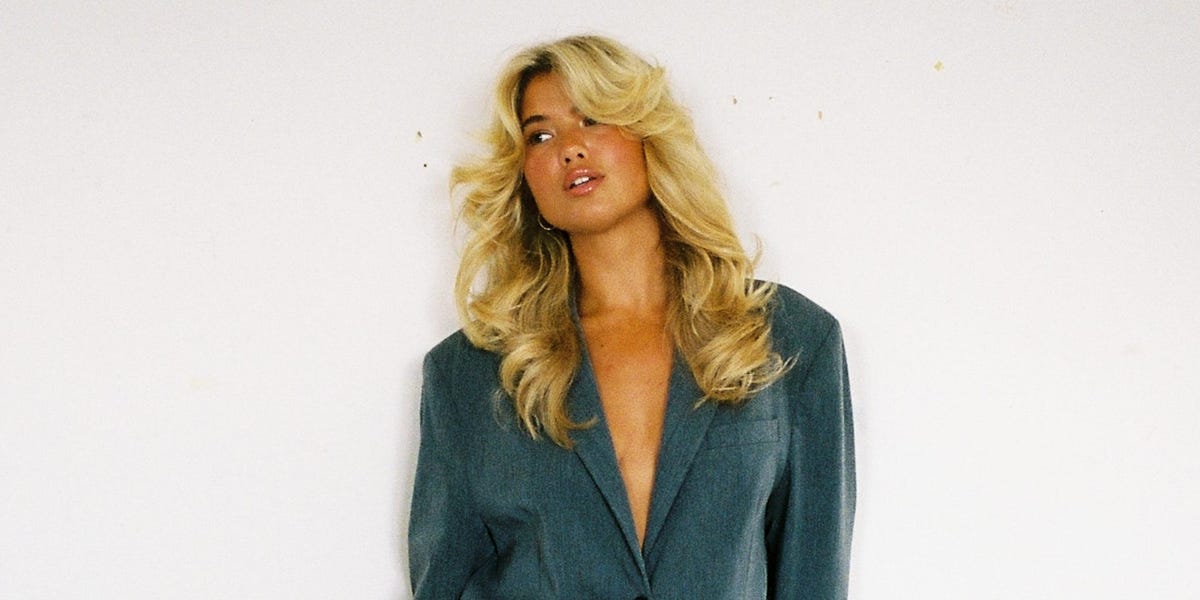Many fashion influencers have a dream of owning their own brand. But the reality of running a mostly self-funded retail business is far from easy, even with millions of fans.
As far as influencer-led products go, direct-to-consumer retail is a tough market to make it in. For instance, some influencer-led DTC online brands that have struggled in past years include YouTuber Alisha Marie’s lounge wear line Parallel Apparel, which she shuttered in 2023 due to issues with manufacturing; blogger Julia Berolzheimer’s Gal Meets Glam clothing collection, which shut down in 2022 over a disagreement between Berolzheimer and her business partner; and YouTuber Aspyn Ovard’s online clothing boutique Luca and Grae that closed in early 2023.
Yet, despite the challenges of running an e-commerce business, one creator who’s finding success in the space is Swedish fashion influencer Matilda Djerf, who has over 3 million Instagram followers. Djerf gained popularity on TikTok for her style, and viral “curtain-bang” hair cut. Elle Magazine credits Djerf for helping popularize the “Scandi-core” aesthetic.
In 2019, Djerf, and her boyfriend Rasmus Johansson, launched their DTC online-only retail business, Djerf Avenue. It’s headquartered in their home city of Stockholm, Sweden, with production factories in Portugal, Italy and Sweden.
Recently, some influencers have turned toward creating a brand with an established partner. The D’Amelios clothing brand, Social Tourist, is in partnership with Hollister, and many influencer-led beauty and skincare brands partner with retailers like Sephora and Walmart.
But Djerf Avenue is owned and operated by Djerf and Johansson. They own 90% of the business, and they sold 10% to an angel investor in 2022.
In 2021, Djerf’s clothing brand earned $8 million in sales, which then jumped up to $34.5 million in sales in 2022. (The company declined to share 2023 sales projections.)
Most of Djerf Avenue’s marketing comes from influencers who both purposefully and organically promote her products.
This month, Djerf released holiday-themed pajamas in collaboration with this year’s style icon Sofia Richie Grainge, who skyrocketed in fame thanks to her lush French Riviera wedding.
For the December 1 collaboration (which is nearly sold out), Djerf and Grainge hosted a holiday party for press and influencers at a ritzy mansion in Beverly Hills. But Djerf told Business Insider that her days are not usually spent in a multimillion-dollar mansion eating gluten-free mac and cheese from Erewhon (LA’s pricy organic food market).
When she’s in Stockholm, she said most days are spent at her office from 8 a.m. until 6 p.m. or 7 p.m., with her team of 40 employees.
“No matter how much I have on my plate, I’m always there,” she said. “It’s in the daily conversations that you find things out. Our community likes to see the daily operations of running a business, which is good, because then I can share that on my platform.”
Work trips, like her recent month-long stay in Los Angeles, are an essential part of growing the brand. The company recently launched a warehouse in the US, and it continues to grow its US customer base. This year, 50% of Djerf Avenue’s sales came from US shoppers, and in the last 3 months this year, 60% of sales were from US consumers, the company said.
“Djerf Avenue is growing fast in the US,” said Johansson, who is the company’s CEO. “In 2024, Djerf Avenue is releasing a completely new category and with that entering a very exciting era for the company.”
‘I don’t even want to know how much time I spend online’
Whether she’s at the office, or at home, Djerf spends most of her screen time on Instagram, reading direct messages, comments, and viewing tagged posts, she said.
“I don’t even want to know how much time I spend online,” Djerf said. “I have to be there, because that’s where our customers are, that’s where our community is. It’s such a big part of my job, so I just kind of embrace it.”
The brand sells clothing, swimwear, loungewear, bedding, and other accessories. The company’s pricing and products are somewhat comparable to higher-end apparel brands like Aritzia, with some mid-range products like $179 for a work blazer to other pricer items like a $71 printed T-shirt.
Djerf said the brand never had any formal three or five year plan, something that the company is now starting to prioritize.
“When we were three people, everyone knew what was inside my head, but now that we are 40 people it’s difficult and we are trying to plan out the future a little bit more,” Djerf said. “There are so many things I want to do with Djerf Avenue, and that’s the fun thing. I would love to somehow be able to help other entrepreneurs who want to get into this, and when I started I didn’t really have anyone to ask questions or look up to, so I would really love to be that person for other people.”
Djerf credits some of her business success to taking risks, while not being afraid to pivot and trust her gut.
“We have to be able to pivot really quickly, and try something new without worrying too much,” Djerf said. “Taking risks is such a big part of running a business. I had to realize that my voice is so strong and to the core I know what the right decision is for this. I feel like the times that I have listened to somebody else, and gone against my gut feeling, those are the times that I can look back to now and be like ‘I shouldn’t have done that.'”
Read the full article here





